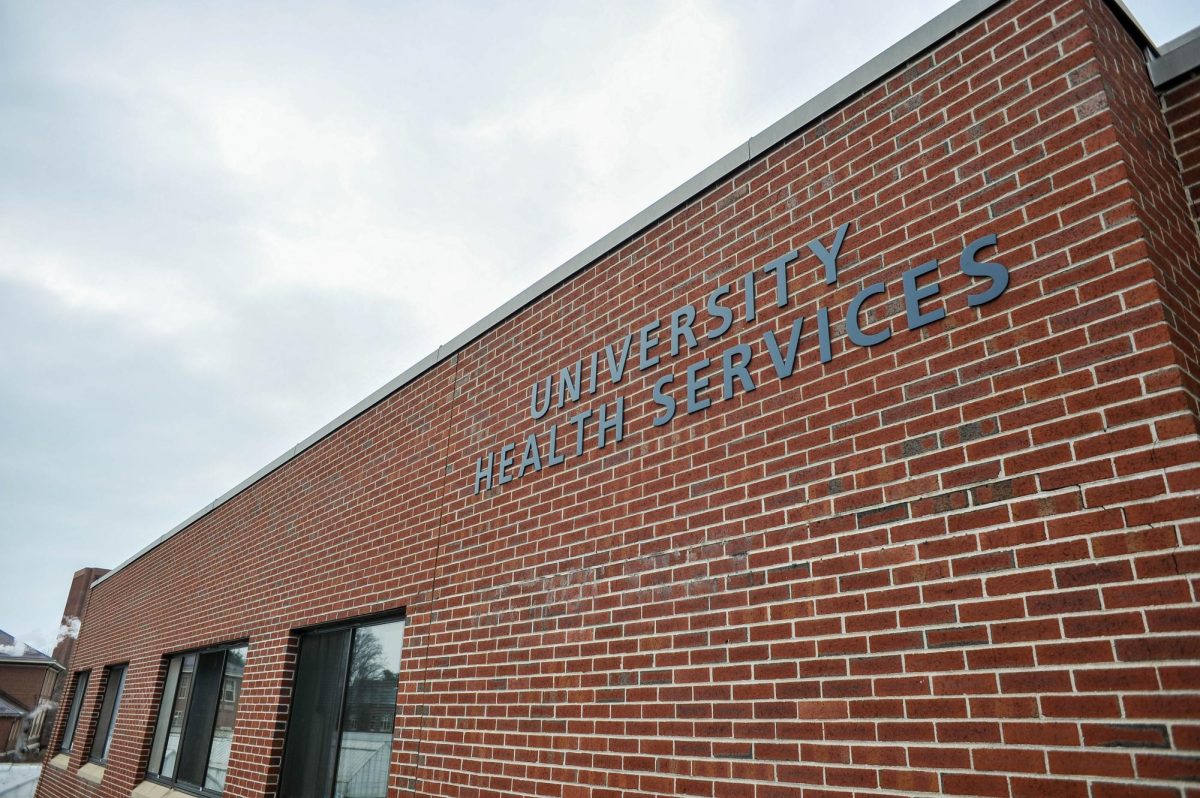Showing skin can’t hurt career-wise
RE: “Scantily-clad interns give working girls a bad name;” Jessica Starling Jones, Sept. 28
Dear Editor,
I think the assertion that women who dress scantily are less apt to advance in their careers is kind of absurd. They are, after all, hired in the first place, and I should think that if they work for heterosexual male CEOs, dressing revealingly should actually help them to advance; after all, attractive women tend to advance more often than non-attractive women, particularly when their superiors are heterosexual men. Therefore I think these “skinterns” are operating in their best interests, sadly, under the assumption that “it’s a man’s world,” and I think it’s this belief (or fact) that needs to be held accountable for “unrespectable” scantily clad women in the workplace; it’s just as much the fault of the males, if not more so. Sure, women need not be complicit in this by meeting the fantastical expectations of men who want you to show your cleavage, but I think the problem lies more in the sometimes-flawed male psyche combined with perceived male dominance in the work place. There’s a reason these women reveal themselves; there is a perceived advantage, and this is the problem.
Hope this makes sense.
Hilary Gardiner
UMass Student
Not quite ‘Zoo’Mass
Dear Editor,
As a Smith College student, I first visited the UMass campus armed with cynicism and what I thought was a healthy supply of snobbism. My college produced more Fulbright winners than any other small liberal arts college; UMass produced more binge drinkers than any school in the area. Smith was home to women who strove for academic excellence; UMass students strove for the weekend. Etc, etc.
As my education went on, I developed close friendships with students from the various Five Colleges, including UMass. During my first overnight stay at UMass, my friend suggested we make our way to the dining hall to eat dinner. I braced myself for the worst. While I had revised my theory that all UMass students were brain dead party animals, I could not imagine that the dining hall would compare to those at Smith, where we can choose nightly from vegan, Kosher, Mediterranean and other dining options.
Following my friend into the dining hall, I was pleasantly surprised to see a far wider variety of food than we at Smith are afforded. Vegetarian, “healthy” and various other options greeted me. My friend, a self-professed picky eater, helped herself to some rosemary chicken and potatoes, while I crafted a large and somewhat unwieldy salad from the expansive salad bar. Grabbing a whole-wheat roll, I scooted over to the beverages, where I was forced to pick from the many choices offered.
We have all heard that America is the fattest nation on the planet. No one is looking to refute this statement. Yet, I think that the answer to this so-called “obesity epidemic” is not to do away with the soft drink industry, or to ban desserts from the menu. Rather, I think the nation would do well to emulate the dining halls at UMass, where the sheer variety of foods allows students to have whatever they want in moderation.
How does a large dining hall with choices upon choices of appetizers, main courses and desserts promote healthy eating? By simulating real life. Realistically, the McDonalds and Dunkin Donuts that can be found in all 50 states are not going to disappear anytime soon. And while a student who eats nothing but salads during college may emerge several pounds lighter, they are not likely to stick to such a diet once reacquainted with the oasis of calories and sugar that await them on the other side.
Nor should they. A balanced diet is one that blends a mixture of carbohydrates, fats and proteins, a plan that even the fattiest item can fit into. Life should be about taking advantage of nature (and man’s) bounty, and one should not have to forgo the occasional coffee and donut breakfast in order to be “healthy.”
The dining environment at UMass encourages students to have their greens and lean proteins. But it also encourages students to remember that life is too short to forgo those delicious double-fudge brownies that appear on occasion. If Americans as a population were to survey their food supply as a UMass student does the dining hall offerings, then we would undoubtedly be far healthier people. Everything in moderation, they say. And that is a truism at which UMass dining excels.
Go UMass!
Sarah Billian
Smith College Student
Time to see both sides
RE: “The desecration of Gaza;” Waqas Mirza, Sept. 2
Dear Editor,
It was hard (but not impossible) for me to enjoy Student Alliance for Israel’s opening event last night. While it was successful, I could not stop thinking about the incredibly invective, one-sided, and inflammatory article against Israel published in The Collegian that day.
In an attempt to proactively deal with these issues this semester, we have reached out to many seemingly incompatible Registered Student Organizations (RSO). Our hopes are to co-sponsor cultural events and engage in mediated discussions in a safe, non-threatening environment.
Articles like this send a clear message: we are not interested in peaceful dialogues or co-existence on campus, rather, in polarizing the community against Israel by fostering hatred and intimidation. However, we will not be intimidated. My chief concern with this article, disregarding the extreme bias and erroneous facts, is how completely unproductive it is. I don’t have a problem with raising awareness of issue, but there is an appropriate way to do this.
The tone of this article starts off mocking Israel’s right to self-defense. First and foremost, Israel has the right to exist and to defend its people. The author fails to acknowledge the cause of the operation, which was, for Israel, to defend its people. It was the constant barrage of attacks and the infliction of extreme psychological warfare on Israeli citizens from 2000 to 2008 to which Israel responded. Mortar shelling and rocket attacks have been on-going since 2000, endangering 950,000 Israeli citizens. The situation reached an unbearable climax in 2008 with 1,730 qassam rockets and 1,528 mortars striking Southern Israel. These attacks were aimed directly at civilian populations with the sole purpose of inflicting terror and death. The dire situation of incessant attacks necessitated the implementation of a warning system, giving citizens 15 seconds to seek shelter.
With more than 3,000 attacks in one year, how can one possibly live a normal life? I cannot even begin to imagine coping with life in constant fear. In spite of this frightening situation, kids had to attempt to pay attention in class, while their mothers had to agonize over their children walking home from school, or their husbands’ taking a shower. Sderot Media reports that 45 percent of toddlers are suffering from post traumatic stress disorder, while one third of their parents are also afflicted.
Aside from only portraying one embellished half of the story, much of the content was false. In the cited article by Amira Hass, she herself states, “Gaza merchants are forbidden to import canned goods, plastic sheeting, toys and books, although the United Nations Relief and Works Agency and other aid organizations are permitted to bring them into the strip.” In an effort to free imprisoned Israeli Soldier, Gilad Shalit, (today is his 1188th day in captivity), Israel has employed a tactic used by the United Nations itself. Israel restricts the inflow of goods to Gaza merchants, while still allowing these goods to enter under the auspices of humanitarian aid.
Presenting half-truths through vindictive language obstructs the healthy dialogue we could and should be encouraging at UMass. Please don’t deny students the opportunity for a truly liberal education by encouraging conflict and hatred. This is not the solution and will never result in what I hope we all really want: peace.
Andrew Horwitz
President, Student Alliance for Israel
Healthcare hounding
RE: “Obama and the rationing of health care;” Alex Perry, Sept. 28
Dear Editor,
After reading the two intro paragraphs of Mr. Perry’s article, “Obama and the rationing of health care,” I was expecting to read a well-argued, reasoned piece about the dangers of Obama’s health care plan. Needless to say, I was disappointed. As best as I can discern, Mr. Perry has two concerns: excessive cost and unjust rationing. These are both very legitimate concerns and are at the heart of the national debate; I would have loved to have actually heard an argument pertaining to either of these issues. Mr. Perry begins by reasonably asserting that some of the $900 billion needed for health care will come from a $500 billion cut from Medicare and Medicaid over the next 10 years. He then goes on to claim that this is an “open example of health care rationing.” He continues by saying that “the government is deciding to take these funds away from deserving seniors and focusing it on people who are younger and currently uninsured.” How, Mr. Perry, is reserving government sponsored health care for the elderly and destitute not a form of rationing? Furthermore, why is the rest of the population less “deserving” of health care simply because they younger or better off?
Although we disagree on this issue, it was at least relevant to the topic of your column; I wish I could say the same for the last two thirds. I can’t tell if you lost interest in your topic or felt you had delivered such a stunning argument that no further elaboration was necessary. Instead of continuing by making legitimate points, you go off on some wild tangent about Obama trying to deny companies their right to free speech. How you thought this related to the beginning of your article, I haven’t the faintest idea; although, I can understand why you are such a fan of the First Amendment, as it is the only reason you are allowed to continue to write such utter nonsense.
Please, Mr. Perry, present an actual argument for why you believe health care reform is not viable, instead of spewing this fear-mongering propaganda.
Alan R. Levin
UMass Student






